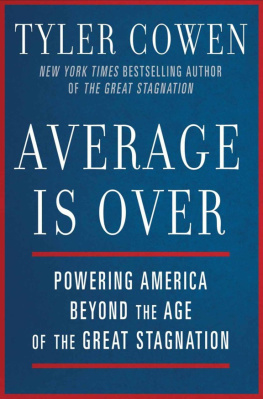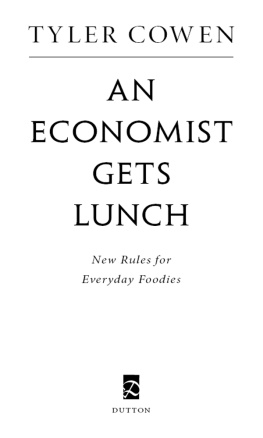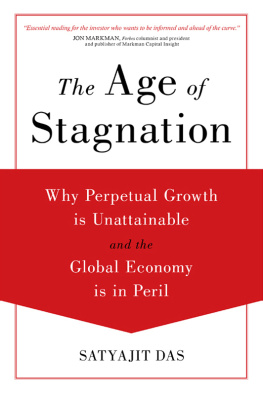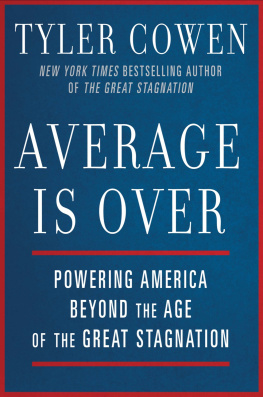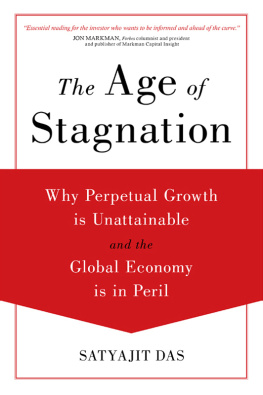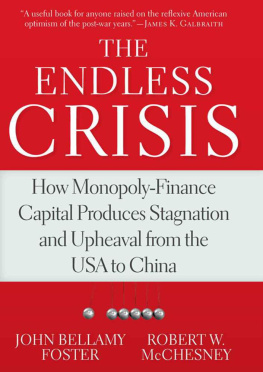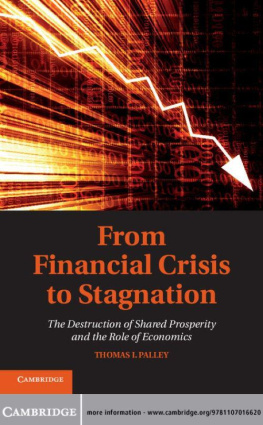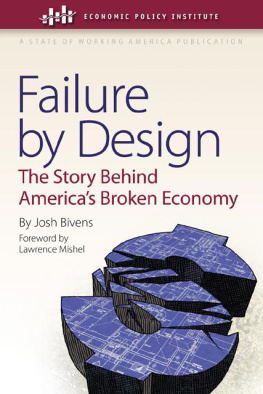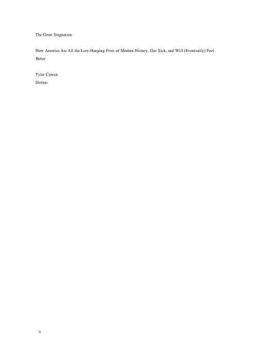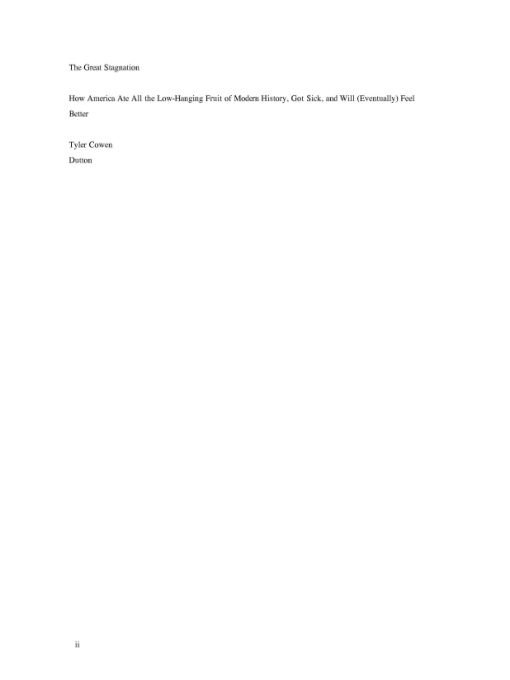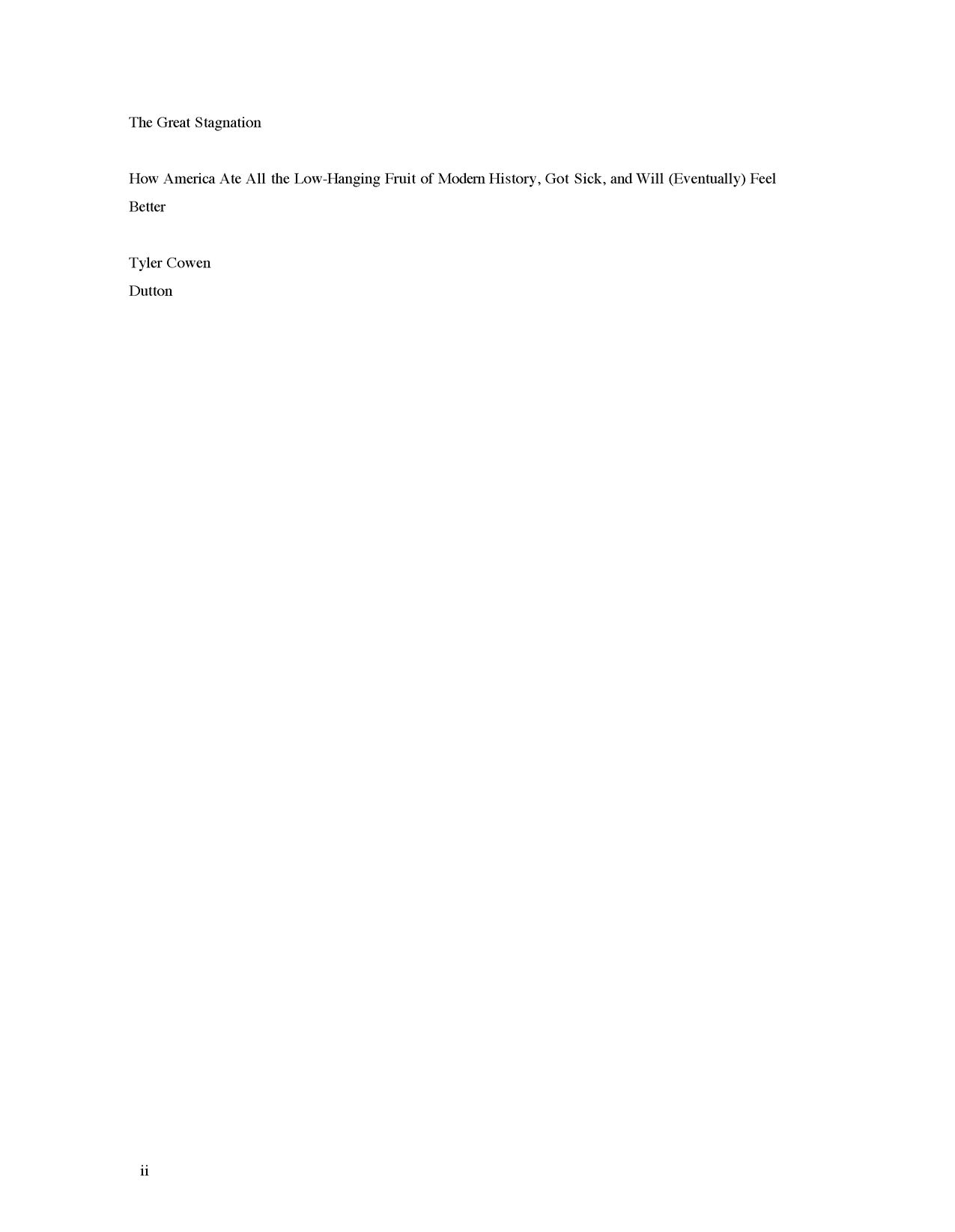For useful comments and discussions, I wish to thank Peter Thiel, Daniel Sutter, Alex Tabarrok, Garett Jones, Bryan Caplan, Robin Hanson, Michael Mandel, Stephen Morrow, Natasha Cowen, Teresa Hartnett, John Nye, Jason Fichtner, Michelle Dawson, Nathan Molteni, Michael Munger, seminar participants at Duke University, and Jayme Lemke. I dedicate this work to Michael Mandel and Peter Thiel, who have blazed the way.
The Low-Hanging Fruit We Ate
Land, Technology, and Uneducated Kids
America is in disarray and our economy is failing us. We have been through the biggest financial crisis since the Great Depression, unemployment remains stubbornly high, and talk of a double-dip recession persists. Americans are not pulling the world economy out of its sluggish stateif anything, we are looking to Asia to drive a recovery. Our last three economic recoveries, beginning respectively in 2009, 2001, and 1991, have been jobless in nature. Commerce recovered far more quickly than did employment.
Median wages have risen only slowly since the 1970s, and this multi-decade stagnation is not yet over. Typical individuals in earlier generations reaped much greater gains than ours, as their living standards doubled every few decades. Weve even given back some of the growth we thought we had. A lot of the prosperity of the noughties was built on debt, inflated home prices, and economic illusions. Currently, we are struggling to re-attain the economic output of 2008, and even before the financial crisis came along, there was no new net job creation in this last decade. Moreover, we face a long-run fiscal crisis, driven by the increasing cost of entitlements, our heavy reliance on debt, and our willingness to let matters slide rather than face up to paying the bills.
The problems extend to American politics. The Democratic Party seeks to expand government spending even when the middle class feels squeezed, the public sector doesnt always perform well, and we have no good plan for paying for forthcoming entitlement spending. To the extent Republicans have a platform, it consists of unrealistic claims about how tax cuts will raise revenue and stimulate economic growth. The Republicans, when they hold power, are often a bigger fiscal disaster than the Democrats.
You might like either the Republicans or the Democrats more than I do, but still something is wrong in todays politics, even if we dont always agree on the remedies. Political discourse and behavior have become increasingly polarized, and what I like to call the honest middle cannot be heard above the din.
People often blame the economic policies of the other side or they belligerently snipe at foreign competition. But we are failing to understand why we are failing. All of these problems have a single, littlenoticed root cause: We have been living off low-hanging fruit for at least three hundred years. We have built social and economic institutions on the expectation of a lot of low-hanging fruit, but that fruit is mostly gone.
Have you ever walked into a cherry orchard? There are plenty of cherries right there for the picking. Imagine a tropical island where the citrus and bananas hang from the trees. Low-hanging literal fruityou dont even have to cook the stuff.
In a figurative sense, the American economy has enjoyed lots of low-hanging fruit since at least the seventeenth century, whether it be free land, lots of immigrant labor, or powerful new technologies. Yet during the last forty years, that low-hanging fruit started disappearing, and we started pretending it was still there. We have failed to recognize that we are at a technological plateau and the trees are more bare than we would like to think. Thats it. That is what has gone wrong.
The old understanding was that the world broke through a barrier with the industrial revolution of the eighteenth century and that we can grow economically at high rates forever. The new model is that there are periodic technological plateaus, and right now we are sitting on top of one, waiting for the next major growth revolution.
Around the globe, the populous countries that have been wealthy for some time share one common feature: Their rates of economic growth have slowed down since about 1970. Thats a sign that the pace of technological development has been slowing down. Its not that something specific caused the slowdown, but rather we started to exhaust the benefits of our previous momentum without renewing them.
There have been three major forms of low-hanging fruit in U.S. history:
1. Free land
Up through the end of the nineteenth century, free and fertile American land was plentiful and there for the taking. A lot of this land was close to lakes and rivers. You could move from Europe, work hard on good U.S. topsoil, and enjoy a higher standard of living. The European peasants who remained at home did not have similar access to resources. The United States became the wealthiest country in the world relatively quickly, and probably it held this designation well before the close of the eighteenth century. So much fertile land coupled with a relatively high degree of social freedom explains much of this transformation.
Not only did the United States reap a huge bounty from this free land (often stolen from Native Americans, one should not forget), but abundant resources helped the United States attract many of the brightest and most ambitious workers from Europe. Taking in these workers, and letting them cultivate the land, was like plucking low-hanging fruit.
2. Technological breakthroughs
The period from 1880 to 1940 brought numerous major technological advances into our lives. The long list of new developments includes electricity, electric lights, powerful motors, automobiles, airplanes, household appliances, the telephone, indoor plumbing, pharmaceuticals, mass production, the typewriter, the tape recorder, the phonograph, and radio, to name just a few, with television coming at the end of that period. The railroad and fast international ships were not completely new, but they expanded rapidly during this period, tying together the world economy. Within a somewhat longer time frame, agriculture saw the introduction of the harvester, the reaper, and the mowing machine, and the development of highly effective fertilizers. A lot of these gains resulted from playing out the idea of advanced machines combined with powerful fossil fuels, a mix that was fundamentally new to human history and which we have since exploited to a remarkable degree.
Today, in contrast, apart from the seemingly magical internet, life in broad material terms isnt so different from what it was in 1953. We still drive cars, use refrigerators, and turn on the light switch, even if dimmers are more common these days. The wonders portrayed in The Jetsons, the space-age television cartoon from the 1960s, have not come to pass. You dont have a jet pack. You wont live forever or visit a Mars colony. Life is better and we have more stuff, but the pace of change has slowed down compared to what people saw two or three generations ago.
It would make my life a lot better to have a teleportation machine. It makes my life only slightly better to have a larger refrigerator that makes ice in cubed or crushed form. We all understand that difference from a personal point of view, yet somehow we are reluctant to apply it to the economy writ large. But thats the truth behind our crisis todaythe low-hanging fruit has been mostly plucked, at least for the time being.



